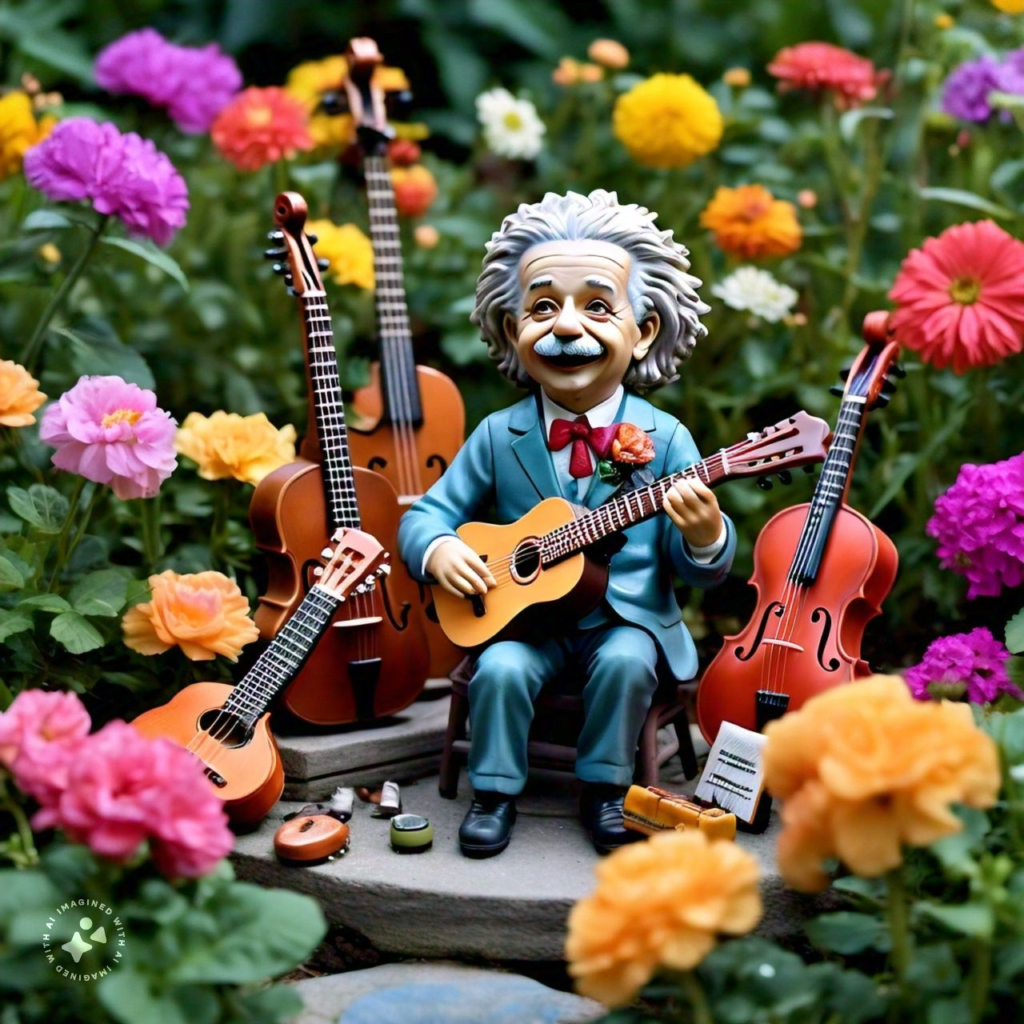
Introduction
In the life of human experience, music stands as a universal language for humanity. Music surpasses the cultural boundaries of the people of the planet. Music melodies connect human hearts and minds across the planet. Beyond Music’s artistic and entertainment value, it profoundly impacts human health and well-being. Music not only influences our emotions it also improves cognition and physical health. This article explores the multifaceted ways in which music enriches and decorates our lives. It offers therapeutic benefits to a person. It also helps far beyond the area of mere auditory pleasure to an individual.
The Emotional Significance of Music
Music has remarkable aspects of the human being. It has an unparalleled ability to evoke emotions in a person. Music has the uplifting notes of a symphony. There may be the soulful melodies of a ballad. It has the power to tap into the deepest recesses of human emotion. Research consistently highlights the emotional benefits of music to the human mind. Music demonstrates its capacity to alleviate stress, anxiety, and depression in a person.
When a person listens to music, it triggers in a person’s mind the release of neurotransmitters such as dopamine. Dopamine is associated with pleasure and reward, and oxytocin. It is also known as the “love hormone,”. It fosters a sense of connection and emotional bonding in a person. In a world flooded with stressors, the therapeutic potential of music provides a valuable avenue for individuals. Music ultimately manages individual emotional well-being.
The Rhythmic Influence on Physical Health
Music changes emotions in a person. It also has real effects on the physical aspects of human health. The rhythmic elements of music are tempo and beat. It can synchronize with physiological processes. It influences heart rate, blood pressure, and even respiratory rates. This synchronization is the foundation of music therapy. Music harnesses the healing power within a person’s body. It helps improve a myriad of health conditions.

Numerous studies have explored the use of music therapy for a person. It has various uses in medical settings. It ranges from intensive care units to rehabilitation centers. For example, the rhythmic auditory stimulation provided by music has been shown to enhance motor skills in individuals. Music recovers humans from stroke or neurological disorders. Additionally, music therapy has demonstrated positive outcomes. It manages chronic pain. It also reduces the need for pain medication in some cases.
Cognitive Enhancement through Musical Engagement
The impact of music on human cognitive function is fascinating. This area of research reveals the tricky connection between melodies and the mental processes of human beings. Musical engagement arouses different regions of the human brain. It fosters neural plasticity and enhances cognitive abilities. Learning to play a musical instrument, for instance, has been linked to improvements in memory, attention, and problem-solving skills of a person.
Moreover, music has shown promise in mitigating cognitive decline associated with aging. Studies suggest that regular engagement with music can help maintain cognitive function. Music delays the onset of conditions such as dementia and Alzheimer’s disease. The intellectual stimulation provided by musical activities offers a harmonious blend of mental exercise. It makes creative expression, contributing to a resilient and vibrant mind.
Social Harmony and Community Bonding
Music has played a very important role in strengthening human societies for centuries. From the start beating of drums in tribal gatherings and modern-day musical concerts with high volumes of sound systems contributed to the joys of the people. Music helps to glue the society which ultimately helps to develop society in other social aspects. It also puts a sense of unity in the community. That also helps to complete collective community social projects. Which are important for societal development.
In recent years, communities around the world have organized various musical programs which help to bring together the people. These initiatives provide opportunities for expressing inner feelings which helps to outlet the emotions. The shared music initiatives express social bounding and coherence it reduces the feelings of anxiety and depression in the members of the society and also increases the sense of fulfillment.
The psychological results of stress on a human for overall are very deep for health and well-being. Chronic stress can weaken the immune system, increase the risk of cardiovascular diseases, and contribute to a range of mental health disorders. Deep stress affects the human immune system and it also affects of heart diseases (cardiovascular diseases). It affects on various range of mental issues. Music, with its soothing effect, helps a person a lot. It positively changes moods relaxes the nature of a person and finishes the negative effects of stress in the human body.
Listening to music decreases cortisol levels in the human body which is related to stress. As stress decreases in a person it promotes relaxation. The use of music for stress management with other practices such as meditation and mindfulness improves individual overall stander of human health.
Expressive Therapy: Music as a Catalyst for Self-Discovery
For many individuals, music serves as a channel for self-expression and self-discovery. Engaging with music on a personal or creative level allows individuals to articulate their emotions, experiences, and aspirations uniquely and profoundly. This therapeutic aspect of music makes expressive therapies. Where individuals use music as a means of communication and self-reflection.

A person writing a song, or simply listening to meaningful lyrics is an effective activity. Music can be a vehicle for individuals to explore and process their emotions. Nowadays expressive music therapy has been particularly effective in addressing trauma, grief, and emotional distress. It offers an individual with a non-verbal outlet for their innermost thoughts and feelings.
The Impact of Music on Sleep Quality
Quality sleep is foundational to the overall health and well-being of a person. It positively influences a person’s cognitive function, emotional regulation, and physical recovery. Music can induce relaxation and alter physiological responses. It plays a significant role in an individual in promoting better sleep quality. The concept of using music as a sleep aid has gained popularity in recent times. Researches support its effectiveness in improving both sleep duration and efficiency.
Slow-tempo and calming melodies can help regulate heart rate and reduce anxiety. It also creates an optimal environment for restful sleep. Music therapy for sleep-related disorders, such as insomnia, has proved positive outcomes in an individual. It offers a non-pharmacological intervention for those seeking natural solutions to sleep challenges.
The Role of Music in Pain Management
Pain, whether acute or chronic, poses a significant challenge to the quality of life for an individual. In the field of healthcare, music has emerged as a complementary approach to pain management. It gives relief and distraction from physical discomfort. Music therapy has been integrated into various medical sites. It included surgical procedures to alleviate pain and anxiety in a person.
The painkilling effects of music also help in the distraction of the mind. Music influences the perception of pain at a neurological level in individuals. Studies have shown that listening to music activates the brain’s reward and pleasure centers. It reduces the experience of pain. This non-invasive and cost-effective intervention offers a holistic approach to pain management. It adds in complements traditional medical treatments.
Nurturing Young Minds through Music
The impact on the human mind of music on cognitive development has a larger impact. Music enhances academic performance and intellectual growth in children and adults. Integrating music into educational curricula promotes the development of essential skills in students. In language acquisition, mathematical reasoning, and spatial-temporal abilities, music plays an effective role.
Educational scientists studied the role of music in human education. These studies showed positive results. It showed a good relationship between music and human education. Music plays a positive role in the academic achievement of students. Learning to play an instrument and participating in school bands or choirs have positive effects on students. Students’ engagement with music showed good mental development. This music activity contributes to the holistic development of young minds. Beyond the academic field, these experiences foster discipline. It also improves teamwork and creativity.
Engagement with music prepares students for success in various facets of life. Now the deep impact of music shows on human health and wellbeing more clearly. It has good effects on the emotional resonance of melodies of humans. It also plays a good role in physiological linkages with our bodily rhythms. Music offers various benefits that enrich every aspect of our lives. By engaging with music, it gives individuals immense power.
Music enhances emotional strength and fosters the mental functions of individuals. It also improves overall physical health. Whether a person actively participates in a musical activity or passively enjoys music playlists. There may be an engagement in community music programs. All these activities impart healing potential which makes a more fulfilling and balanced life.





The helpful information